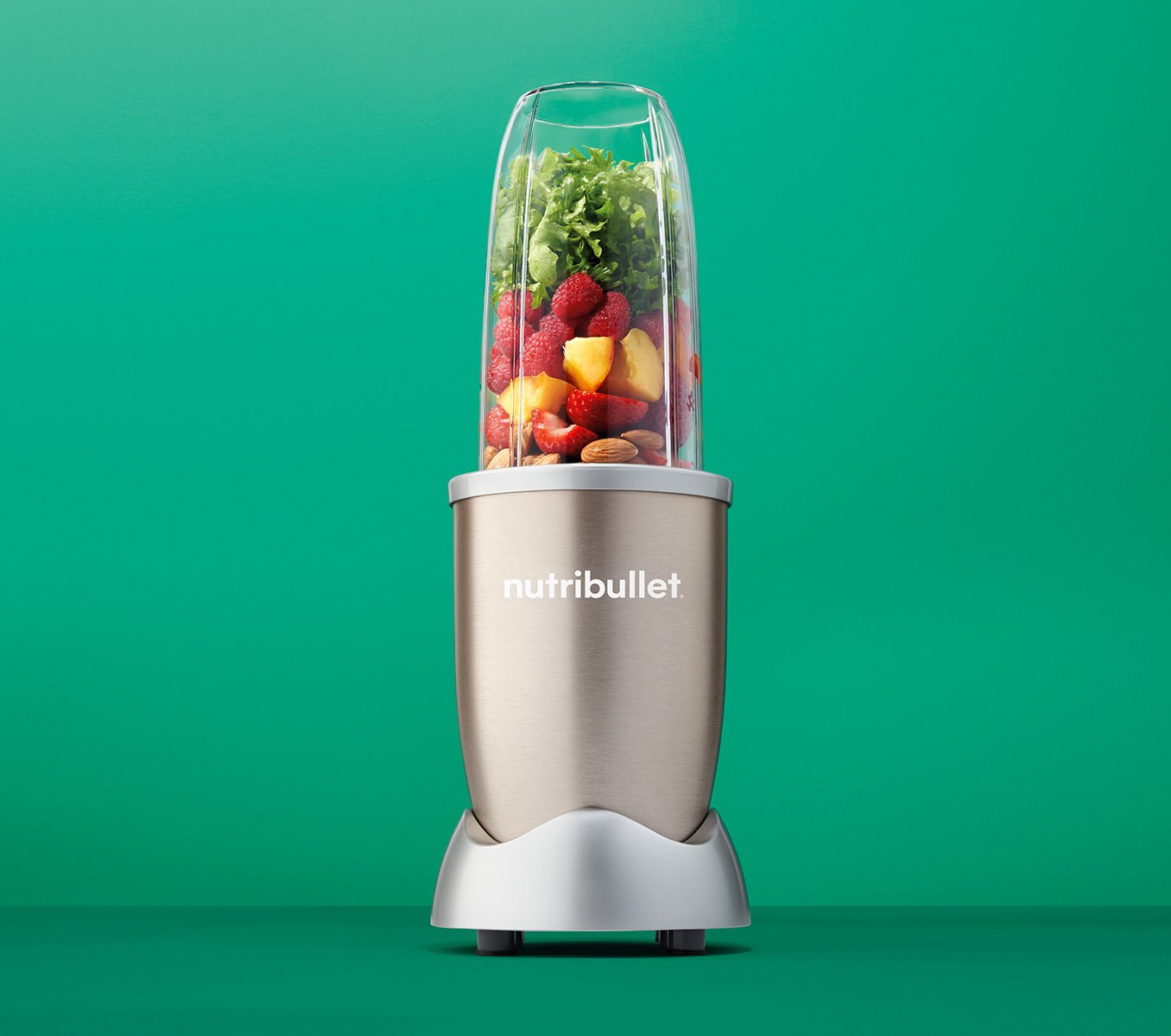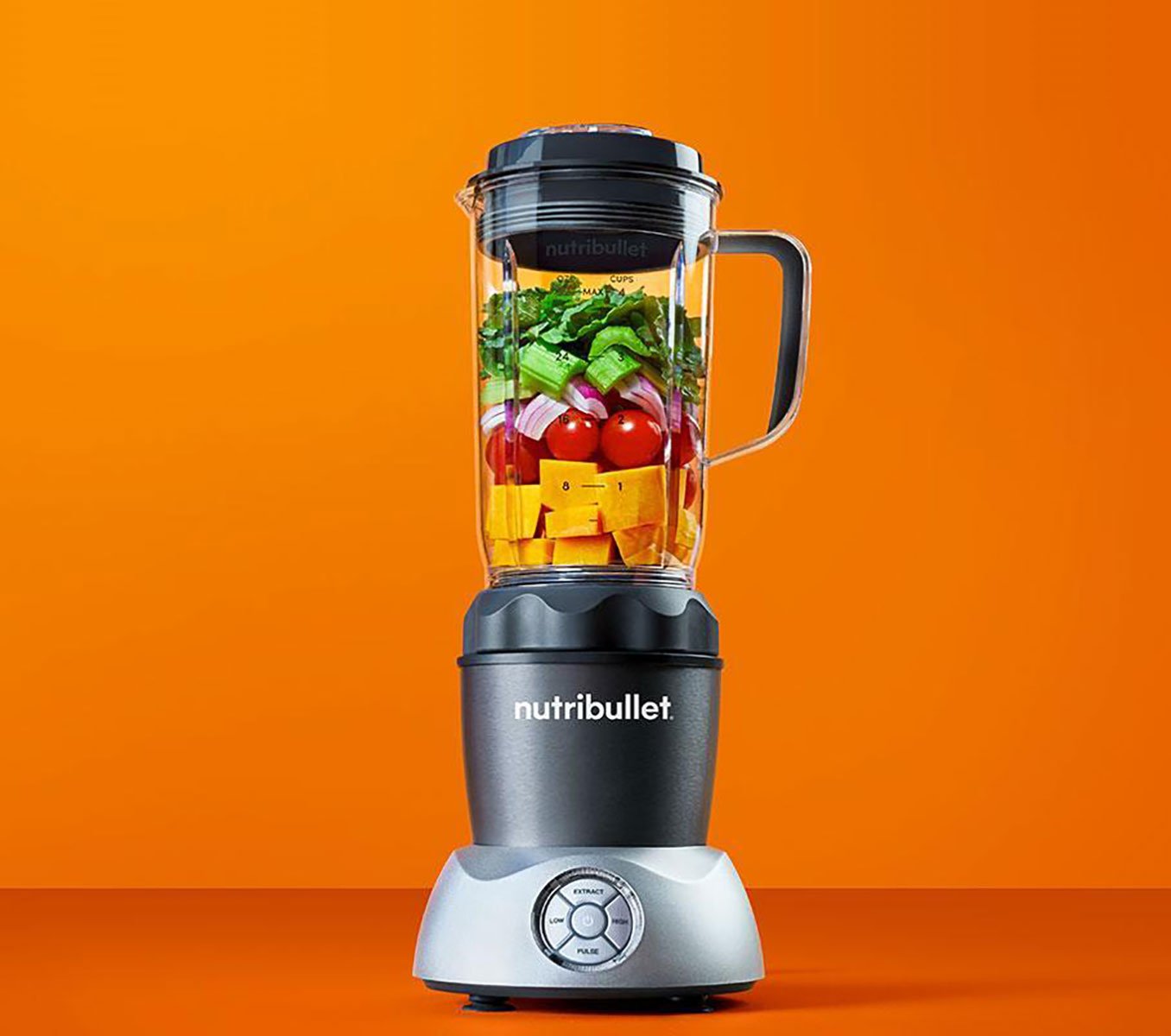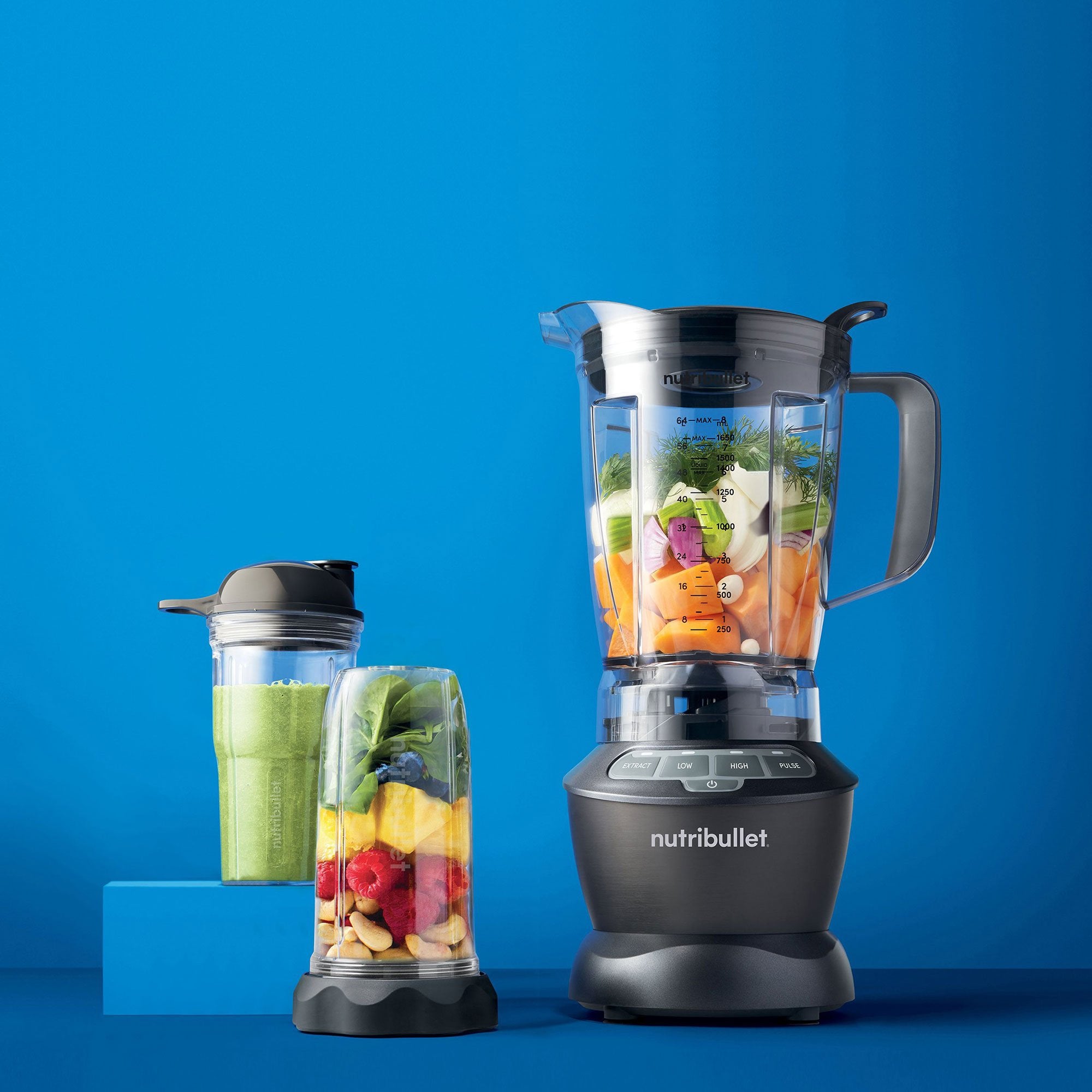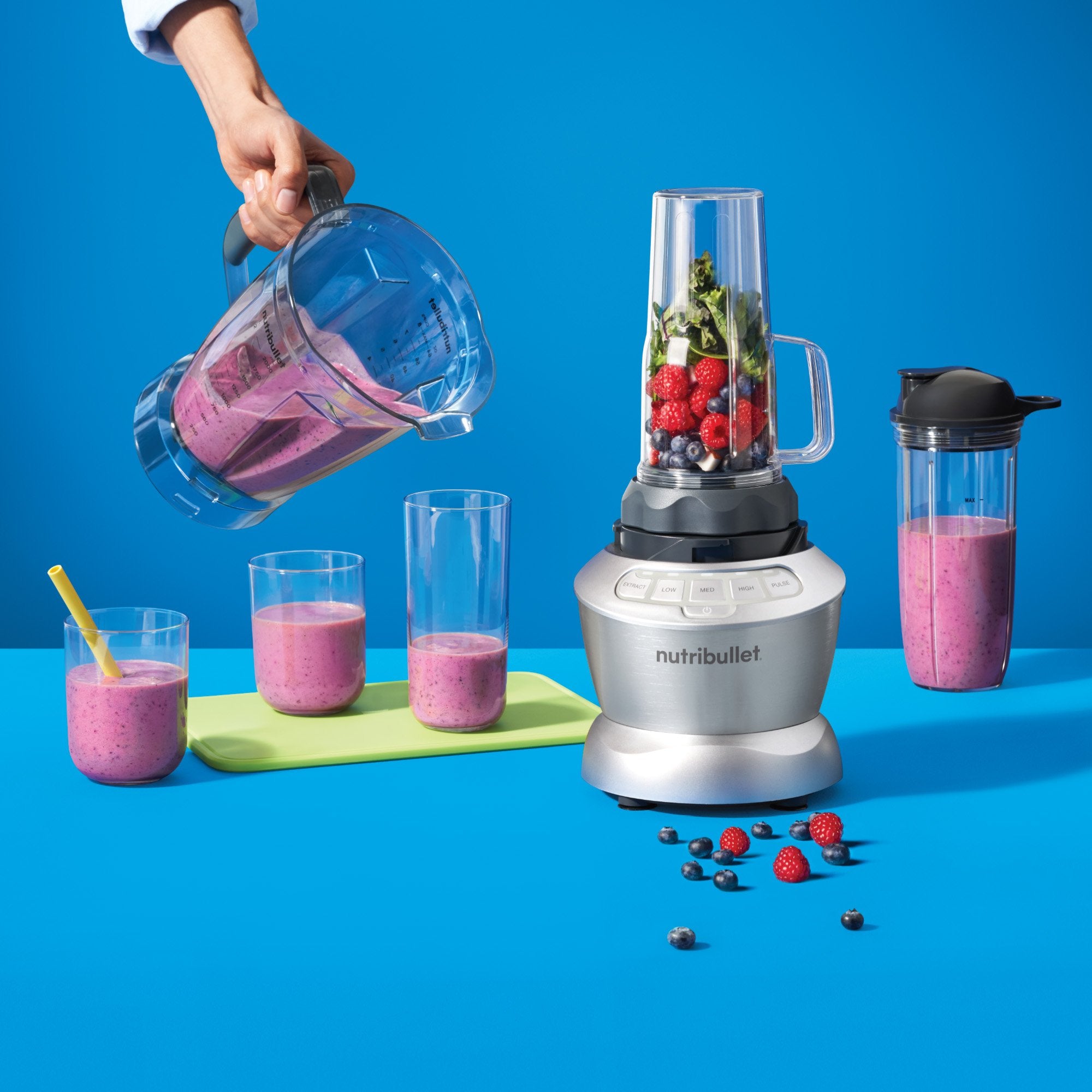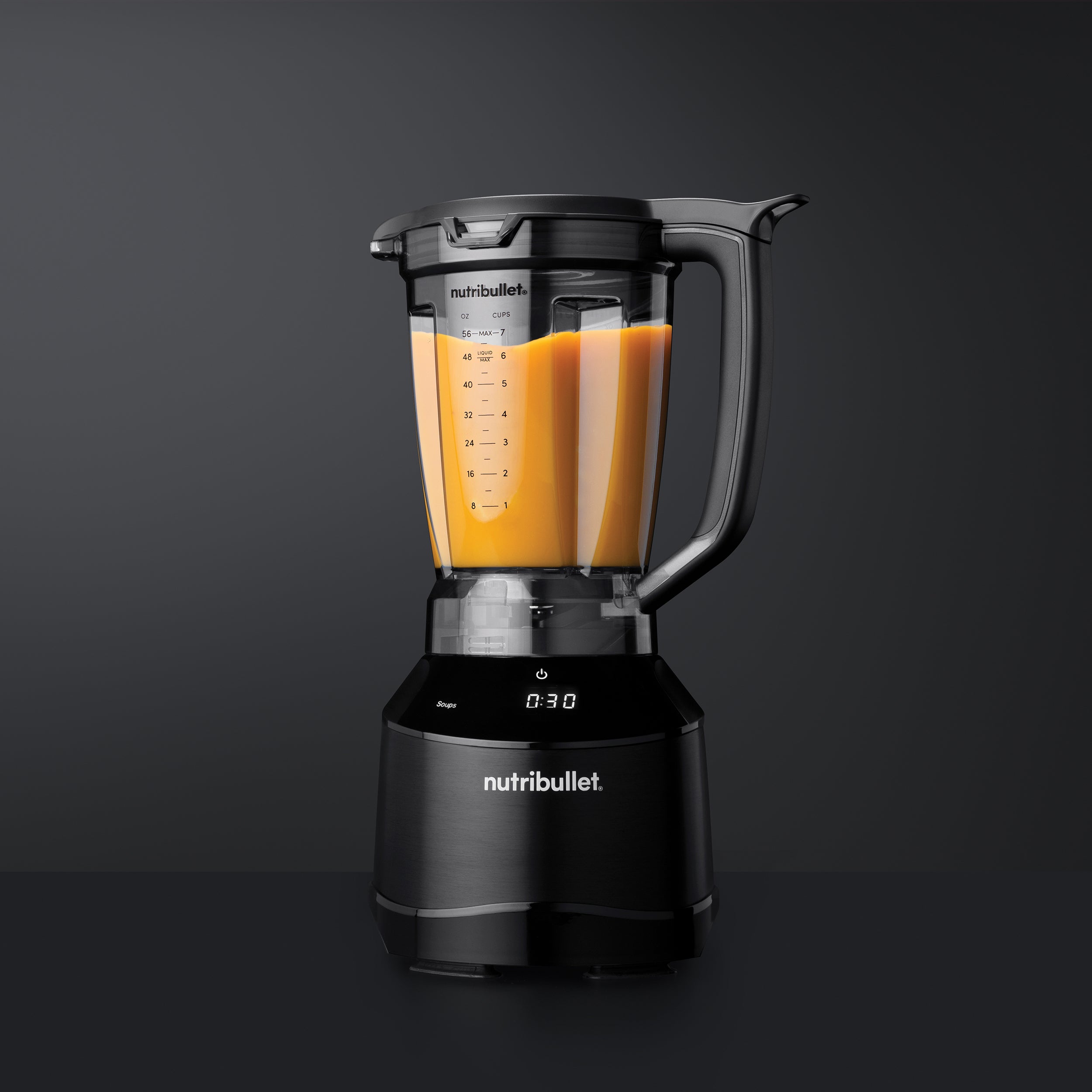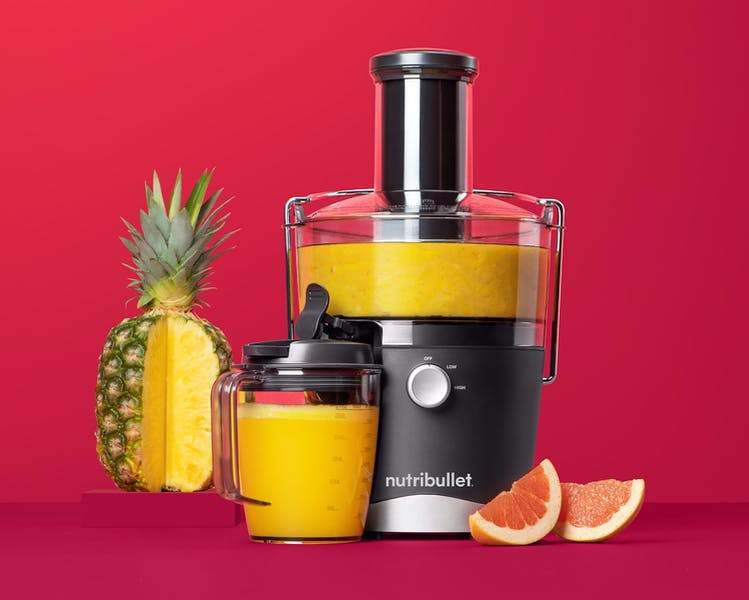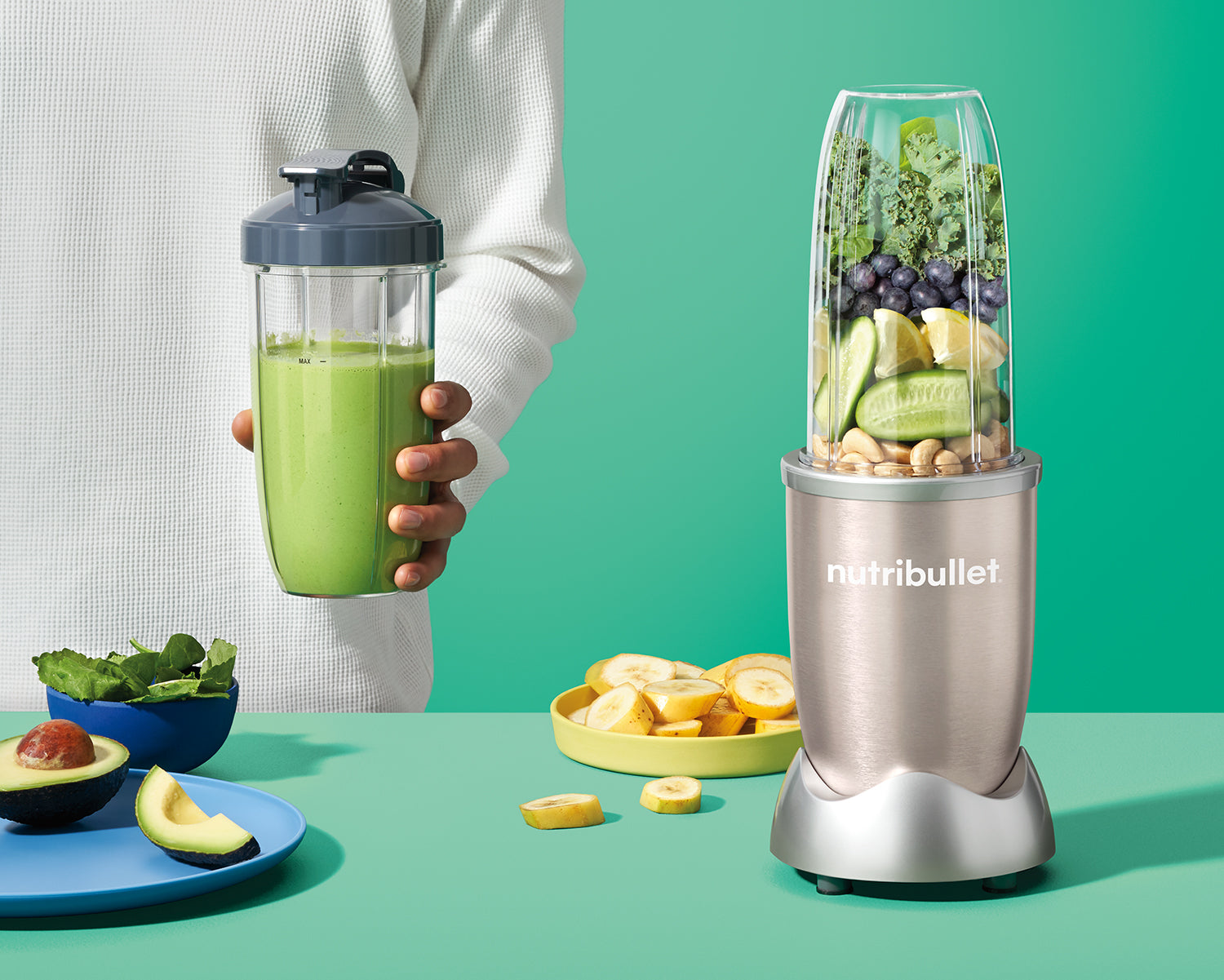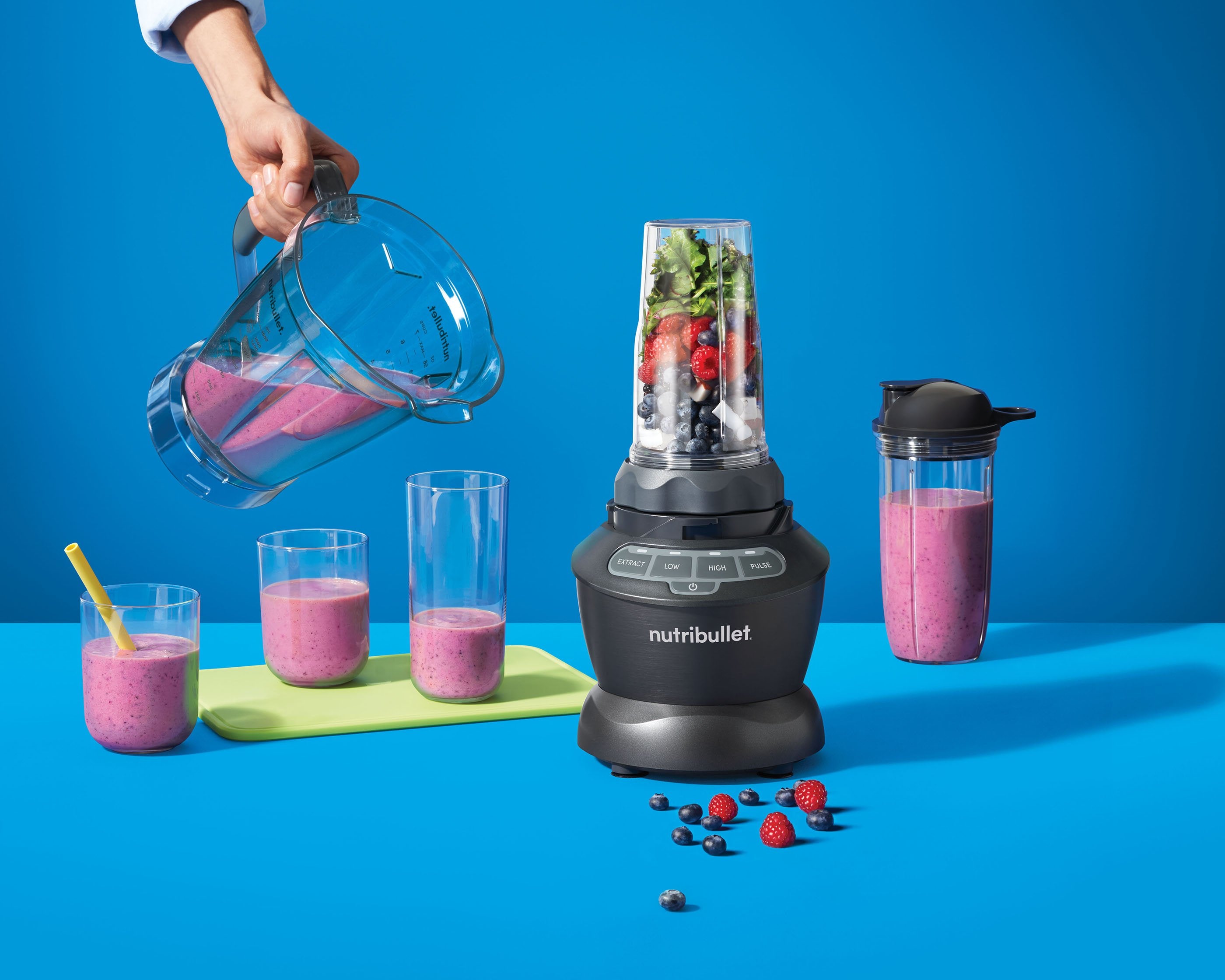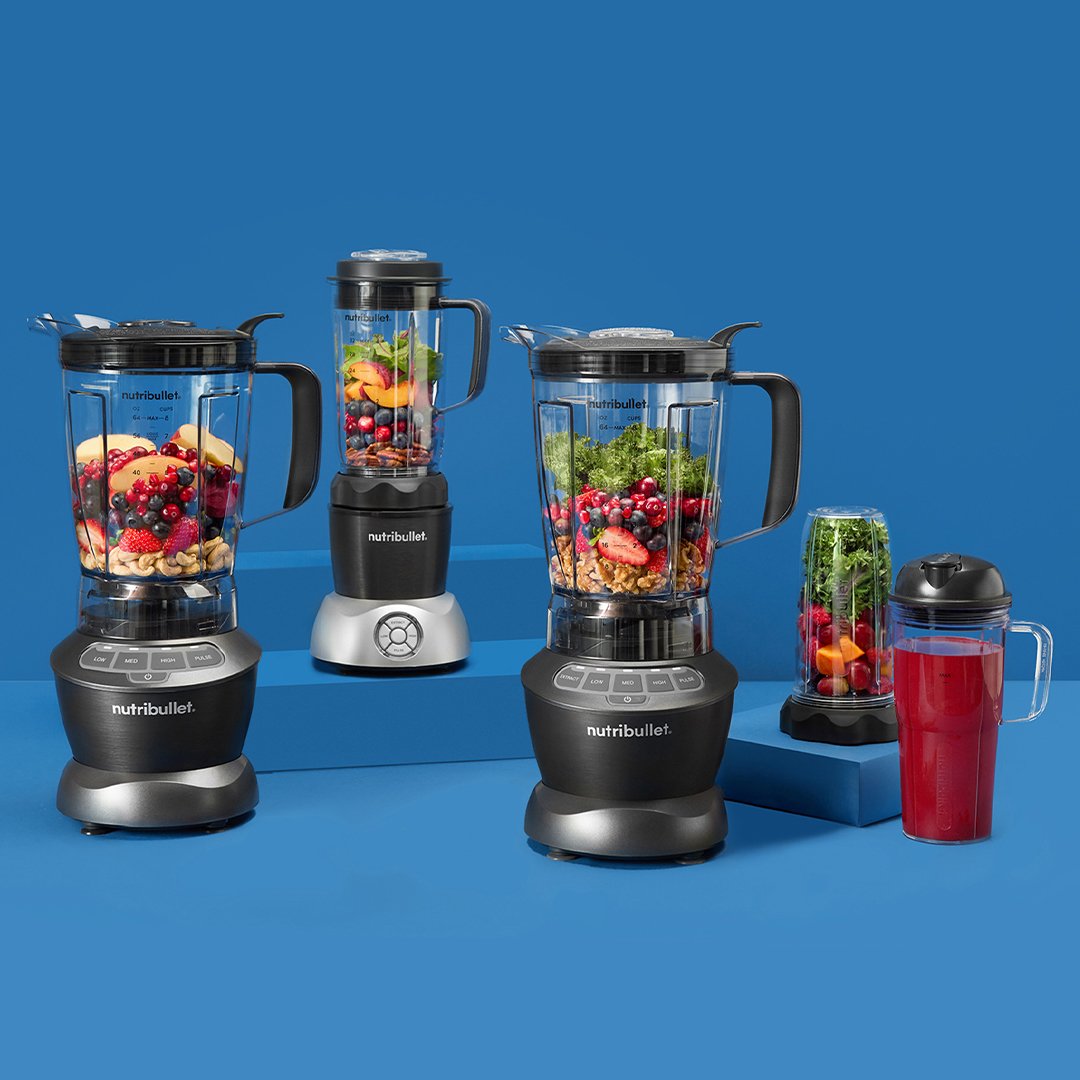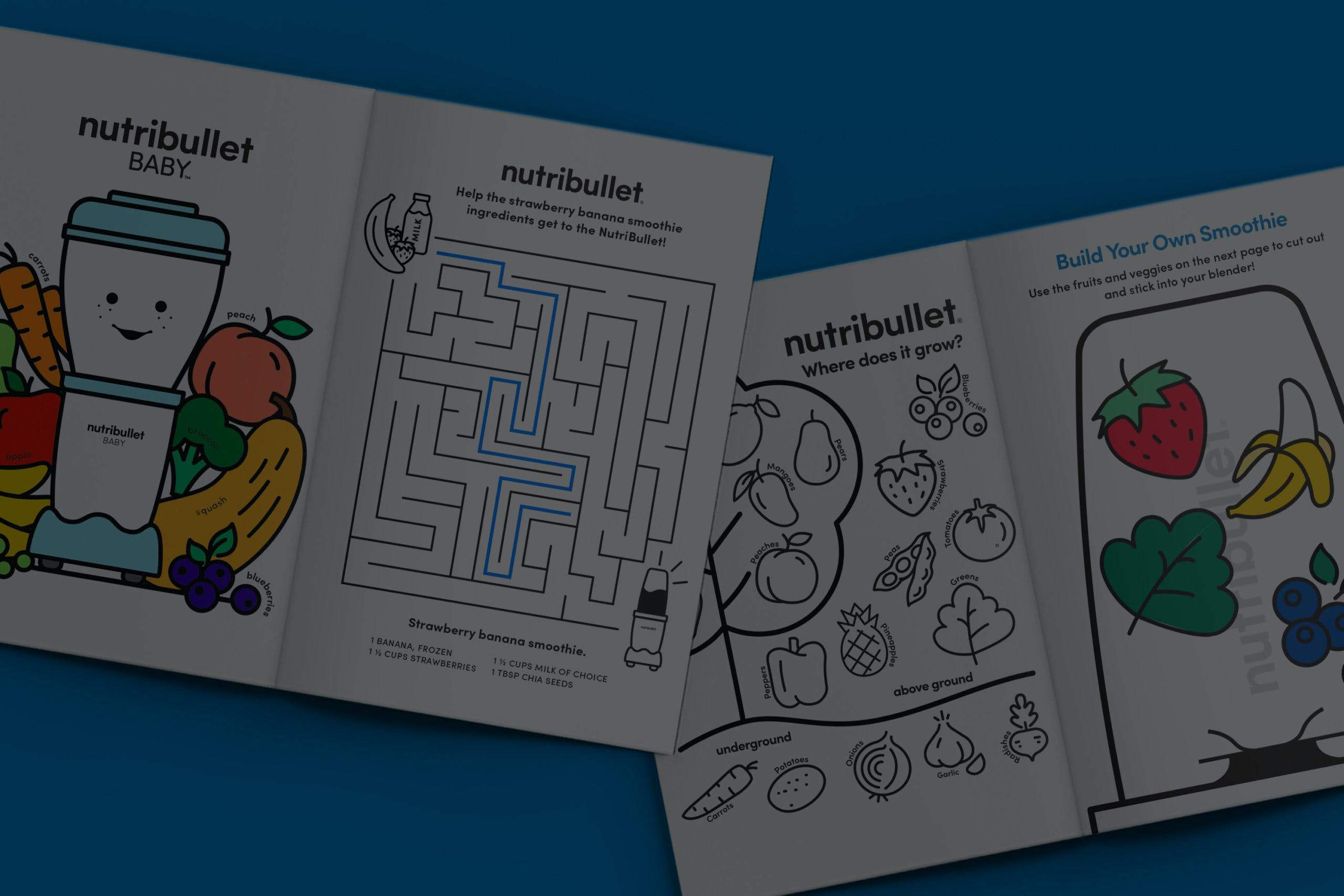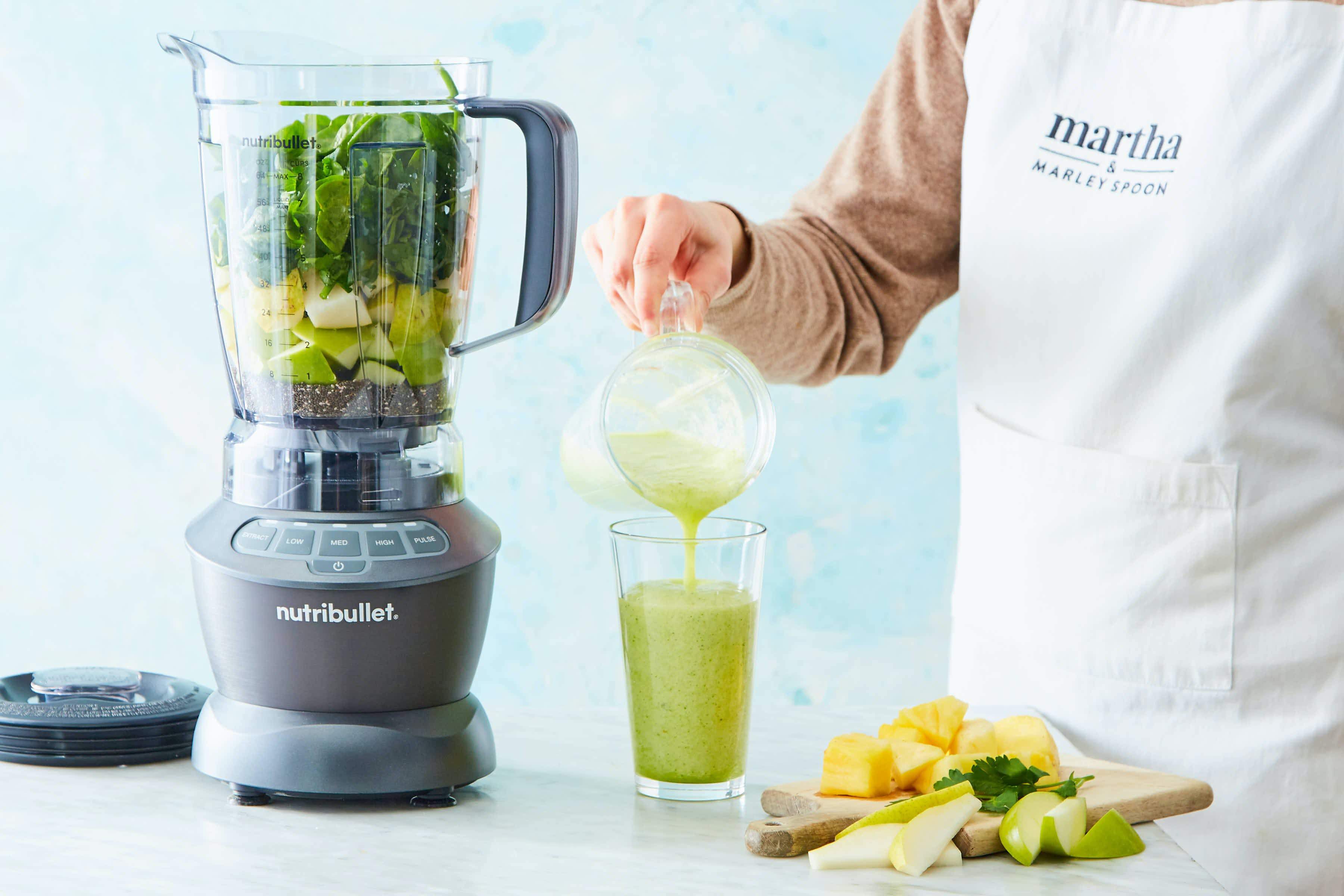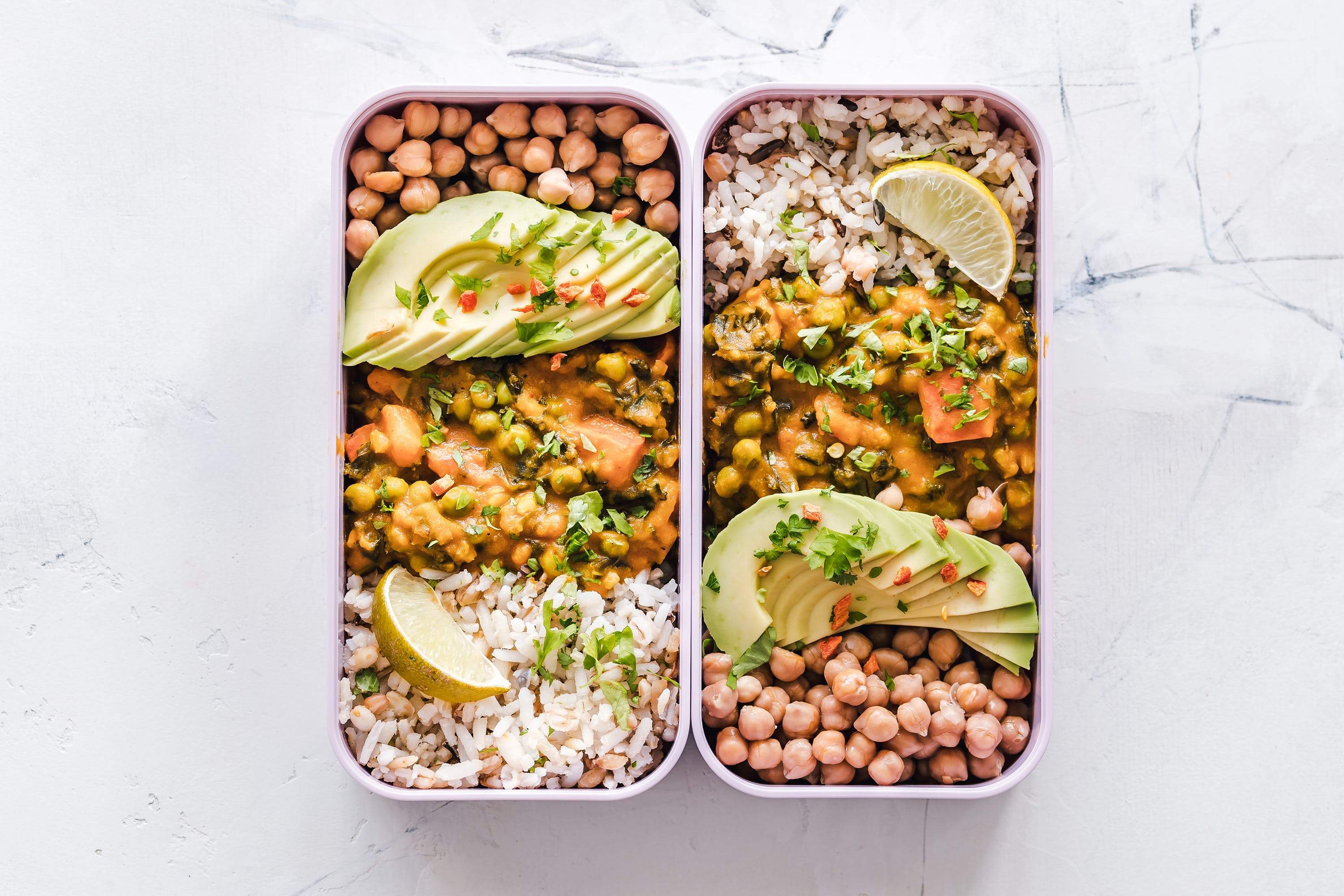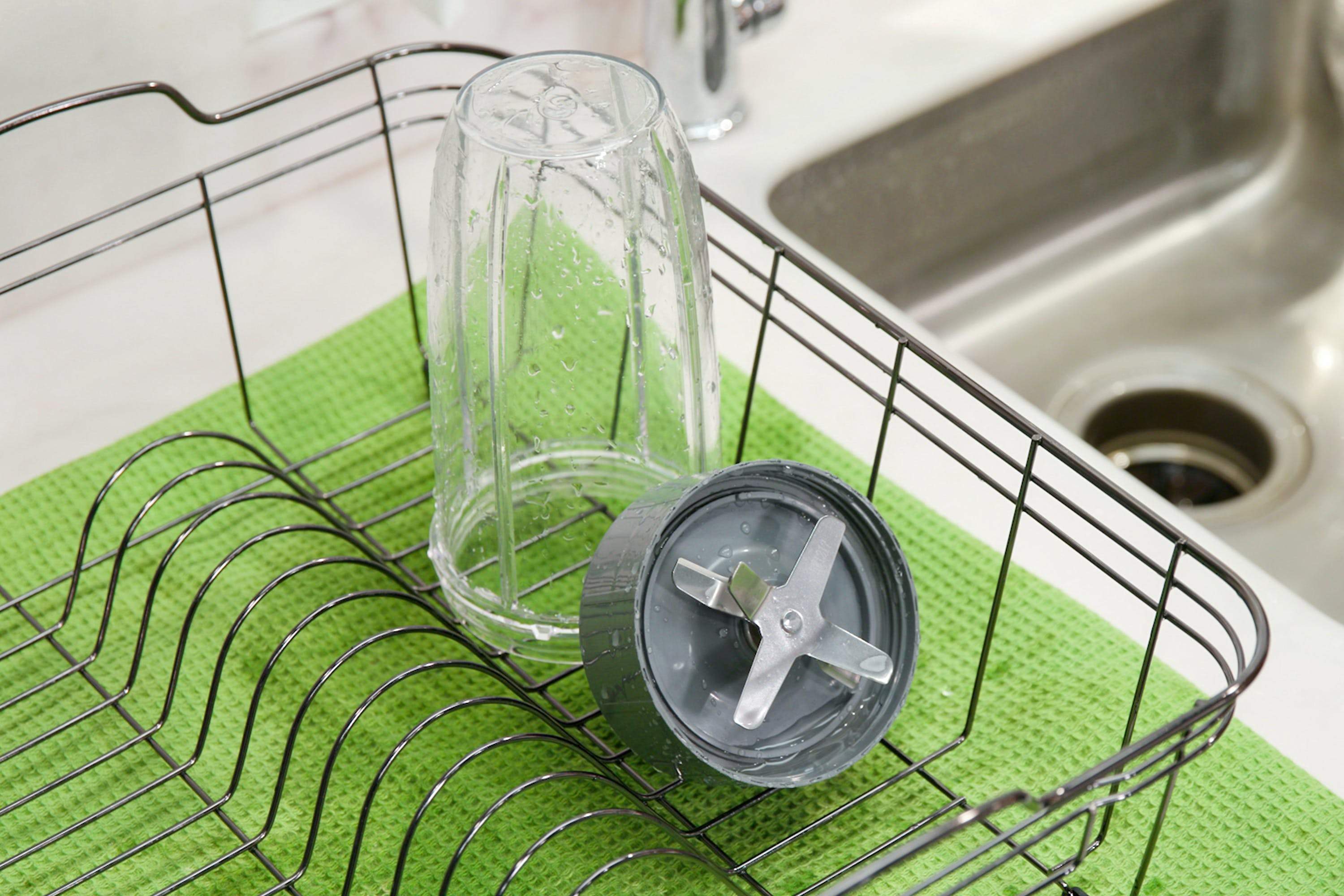In this episode Elynn DeMattia, Certified Functional Medicine Health Coach, interviews Magdalena Wszelaki, author of Cooking Up for Hormone Balance, about common-sense plant-based nutrition and its relation to the many facets of daily living.
For more information on Magdalena and hormone balance, check out her page HERE. To purchase Magdalena’s book, click HERE.
Want to listen to us on iTunes? Click HERE. Make sure to rate and subscribe so you don’t miss out on the rest of season 1 of NutriBullet Kitchen.
Follow Along with the Transcript:
E: I'm here with Magdalena Wszelaki author of Cooking Up for Hormone Balance and Magdalena we're so excited to have you in the NutriBullet Kitchen.
M: I was so pleased to be here. Thank you.
E: We're so excited. So please tell me about your personal journey and what led you into becoming a hormone expert.
M: You know I think the hormonal balance was the last leg of everything that has happened with my health so Hashimoto's disease which is basically a hypothyroidism disease that causes hypothyroidism estrogen dominance adrenal fatigue. I had it all. Right. But you know you're really kind of started from the day I was born. I was never breastfed as a baby. I always had a lot of digestive issues a lot of food sensitivities. I couldn't do dairy, eggs. I couldn't do gluten. That's all we ate as a family right. Eczema, I was covered in eczema. As a young adult covered in cystic acne not just my Facebook my front line back, I even had it on my butt. But you know, terrible PMS, terrible. I used to be so bloated I will look like a full months pregnant lady. You know being 25 years old and discovering nutrition and how incredible changes it can make really. You know I was there was a point of no turn around that at that point of my life. It’s the digestive issues, the food sensitivities that's a horrendous inflammation combined with stress that eventually led to all these hormonal imbalances.
E: And you changed careers somewhere through that journey Am I correct?
M:I did. I used to work in advertising on the road all the time I was in every job working on Fortune 100 brands so you know the top brands you see in your home there were my clients. The truth is that I was living off hotel food. I was living off of airplanes, on airplanes and hotels, and not eating the best food being constantly stressed out. I was the girl on a Sunday night who would be working on her slides on the flights to present somewhere on a Monday morning. You know that took its toll.
E: In the form of your book. It reads, “every time you eat a meal you choose to support or diminish your body's healing capabilities.” Tell me how that applies to your work.
M: So first of all I got to give it credit to the person who did the forward and that's Dr. Isabella who did such a beautiful forward for my book. You know so it's a choice we're making. You know is it going to be a pop tart I don't know. Am I gonna put something that's really nourishing for my body that my body is absolutely love and responded well. It is an everyday choice that we are making. You know for a lot of people it's sometimes perceived as being a sacrifice of not eating something we really like right now. Incredible things about health is that you begin to make progress with your health your hormones start getting that balance. You kind of get addicted to good food and that choice just becomes a natural calling.
E: When someone comes to you and they're basically let's call them a junk food junkie at this point and they've had enough and they really want to start eating more healthfully. What do you recommend to them?
M: You know I love the idea of crowding out, meaning asking the person to incorporate some incredible foods that we know can make a huge difference in your energy levels, clarity of thought, normal brain fog beautiful skin. I mean, who wouldn't want to do that? Right? And then we talk about specific foods like with those flaxseed whether it's grains whether it's matcha, you know ginger or whatever it might be, and asking the person to incorporate that in and saying you know I really would like you to do those two three servings a day of this and this and this because they can have such great impact. Then the person is going well then I don't really have the time and space in my tummy for junk food because you have got to incorporate those. This is a wonderful concept of just bringing those things and as we start to feeling better we start forgetting about the junk foods.
E: That statement I always use. Nothing feels as good as feeling good. Do you find that with the people that you work with they start feeling better and they're willing to commit more and more to healthy eating?
M: Absolutely. Once you start seeing results there's no going back. You know it's a very powerful statement. The one that I use is that we get addicted to feeling good.
E: It's very true very true. We'd love to hear more about your food mood poop journal. What is this journaling all about? Magdaléna.
M: Are you sure?
E: As soon as I saw it I knew I was going to have to ask.
M: It's an incredibly powerful detective tool and I have to tell you when I first started out in my private practice and whatever we finish a program together with a group of ladies, and I asked them what was your major takeaway and I always thought they were going to say “oh it's because I lost 20 pounds” or “because my skin is so clear” “because you know I don't have a foggy brain anymore” right “I'm so clear and I'm so energized.” And interesting thing was that actually that was happening. The biggest thing that will come back with is, they will say I've learned to listen to my body. Meaning it's no one's gonna be telling you whether this kind of it is right for me whether it's this kind of effort is right for me. You know how people are like oh this is so good for you. Maybe not good for you. You know like I can’t do turmeric for example my body is just not prepared and ready to break down turmeric. So it can be fantastic food but it's not great to me. And so when you use the F&P journal Food and Poop Journal it is a way to really intrude into your body going like you know every time I eat grains my tummy is feeling really off. Every time I eat you know chocolate right or whatever. I’m achy, I’m feeling that, right. So this is really a powerful tool. But also then you could talk about some mood is a representation of how food can impact you. Right. And then poop. You know it's, it's a huge diagnostic tool it's been used for centuries in traditional Chinese medicine and now in functional medicine we are recognizing that it is a really important diagnostic tool to show you what is going on the inside. How are we breaking down the food? How well are you absorbing the nutrients from the amazing food you're putting your body, right? I mean we spend so much money incredible organic food we go to shopping at expensive places or go into the farmer's markets right. Taking supplements and the Question of the game is not what you eating but how well are you absorbing that food. It’s not what you eat, it is what you absorb. And you know and so by looking at the quality of the poop you can tell whether that is happening or it's not. So can I give you an example.
E: I would love it, I was going to ask you for one.
M: So for example somebody was not absorbing food optimally you would see food particles in the poop right. So the first thing the audience can do is just you know when you do it first thing in the morning just take a look and see because if you seeing pieces of carrot and green leaves and things like that from the food you ate the day before that's a bad indicator. Another thing is you know something cold like the beets, test the tests will show you, as in beet, will show you what is the transit time of the food you're eating right. So have a piece of it. You know you could make a smoothie with a with a beet in it and then just count the times so you have in the morning at 10:00 in the morning for breakfast right on a Sunday and see when you're when you poop you look at you put in a color that's going to be a huge indication of how long the food has stayed in the system. The good digestive system will be between 12 and 24 hours. Why is that important. Because the longer it stays in there then the toxins instead of getting evacuated or re-entering your body. And that creates toxic load in the body causes inflammation causes weight gain but also our hormones need to be pooped out and so we are not pooping them out that's not good. It creates a lot of different hormonal balances.
E: So if you identify that you're not absorbing food well you're not digesting food properly. What would be what would you recommend to someone what would they try?
M: Great question. So you know increasing our stomach acid actually is one of the simplest things to prepare the body for breaking down the food better. And most people are low on stomach acid even though we are told that when you have for example acid reflux that you've got too much stomach acid is actually the opposite. You don't have too much you have too little stomach acid, so the stomach is becoming so weak that that little flap that closes between esophagus and the stomach gets so weak that the acid starts escaping and so you know that's like a little side note a lot of people who are put on anti acids six months later stop having all sorts of different chronic diseases allergies for sensitivities they can eat as many foods as they could before and nobody really makes the connection between antacids and older different chronic little pesky things that start popping out. And so what is the thing that we can do is, I love adding for example lemon juice or lime juice to my smoothie when I'm making one. Or I would have, I would recommend for anyone to drink two tablespoons of apple cider vinegar and a glass of water before a meal. So you priming your digestion for receiving food and optimally breaking it down.
E: It's funny because I'm obsessed with apple cider vinegar and a lot of times I never remember why. I know it's taken it's really good for me so I'm glad we're having this conversation because now I'm remembering and it will remind me to take it. When it comes to, I mean at NutriBullet, we've always talked about how having a smoothie and bringing it down, the way were able to break down things like kale and pineapple to such small tiny particles. Help people to absorb it even who might have acid issues in their stomach. How do you feel about that, with smoothies and the NutriBullet, and breaking foods down in that way? How does that help with digestion?
M: Yeah so I love it and everything you said is absolutely I subscribe to that. I would just add one more thing is that carbohydrate get broken down with the saliva. OK. And so those specific amino acids and enzymes that we are creating in order to break the food down is in the saliva. And for carbohydrate specifically and so when you talk about a green smoothie there's a lot of carbohydrates right. All the beautiful vegetables are carbs, good carbs but you still need to break them down and so forth again for maximum absorption will be super important. So take your time in drinking the smoothie and making sure you get the saliva going with that smoothie before you swallow it because you're just chugging it down. You know it's again this absorption issue. Yes you're breaking it down but you also need the chemical process to happen. So just take your time. Slow down. Slow smoothie moving.
E: I can remember that. And it's interesting because I've heard you know other health experts talk about how you should, you shouldn't drink smoothie faster than you would be able to eat all of the ingredients individually. Do you think that's about the right amount of time that you would say you should be spending drinking you're smoothing?
M: You know I've I don't know. I mean it's just I think let's just leave it as an intuitive thing. You know for a person. It kind of depends on who you ask if you go to a monastery like a meditation monastery and with a meal was you know it was a service like a 12 p.m. at the latest. They would asking to actually chew as many times as 50 to 100 times before you swallow. Right. I mean so that's like the other extreme. And then we have somebody who just chugging it down while driving like crazy to work.
E: Guilty.
M: Just being somewhere in between.
E: So Magdaléna how does NutriBullet and smoothies work into the nutrition program that you've created?
M: So many ways. Some of my absolute superfoods favorite foods that I would want to incorporate to anybody's good hormonal health can be blended into a smoothie. You know and so I'm a you know I'm a stickler for getting maximum out of new trends into our body as much as possible with minimal sugar. You want to have good hormonal health sugar is the name of the game here to reduce that but it also the quality of nutrients that we can get in and we don't. Let's talk about the super foods and some of the hormone balancing foods that are getting that in alkalizing the body. You know I mean we start the day with a cup of coffee that's hugely acidifying. Right. You want to alkalize the body is a beautiful way of rebalancing that with a wonderful smoothie. You know the tough ingredients I will call it like for example broccoli sprouts about my absolute favorite. They have such powerful potent medicinal properties, they’re particularly that you know that the most tasty kind of food you want to incorporate right like you know maybe on the salad here and there but in the larger quantity just like masking that with some fantastic other fruit or low you know low glycemic fruit just a great way of bringing those difficult foods medicinal foods into your diet. You're still making it taste so good.
E: It's always I think of a smoothie is a great vehicle for other things so you have your core ingredients but whether you want to add your mocca or your ginger root or anything your…
M: College…
E: Right, is just a vehicle that you can jam as many things as you can possibly in there.
M: Like you know so many times people like you know I know you talk about flaxseed time and flex is one of my absolute favorite super foods for hormonal balance. How do I eat that. A smoothie. It's simple.
E: I sent you our new pride and joy the NutriBullet Balance . How do you see NutriBullet Balance helping people achieve their wellness goals.
M: You know right after you said it to me I was so excited to see and I'll be perfectly honest here. Calories don't really matter in my world. What really got me so excited about when I saw the little brochure that came with it. And when you told me about it is that is the fiber is the amount of sugar that can be measured. I was like, hallelujah. I need this and I immediately send it to my entire list, to hundreds of thousands of people because I wanted people to realize one thing and that is you know as much as I love smoothies the downside of smoothies is the amount of sugar we can load into a smoothie and you know as you know I'm not American. One of the things is that I was a big shocker for me moving to the United States was how much sugar was hiding in everything and how much sugar an average person was consuming without realizing how sweet everything was. I remember even buying a Polish kielbasa and it had sugar in it and I was like why would you put sugar in this and he says well because that's what people want. And the sugar and bread. You know it's a European that's completely a foreign concept that shouldn't be here. And so it's easy to create a smoothie with a lot of you know bananas and pineapples of mangoes right and taste great. But you said it yourself up for total disaster or something as much as 40 grams of sugar or easily 4 grams of sugar is one teaspoon. So visualize that you're basically drinking 10 teaspoons of sugar right there.
E: And it's true it's easy for even healthy ingredients to add up so quickly. Coconut water it's great it's great for you but has a lot of sugar. A couple of bananas and a mango and you're over 30 grams of sugar probably right there.
M: Absolutely. So this is where. So this is why I was excited just to create awareness about how much sugar is in your smoothie right and start managing that and shifting a little bit more towards savory kind of smoothies. That's what I teach my cookbook you know which is a bit of a foreign concept but it works and it taste great. But also the fiber part. I love that so much because fiber is so essential for us to have a really good bowel movement, is that you have soluble fiber. Soluble fiber, it's a fantastic food for probiotics. You know how everyone is on a probiotic kick. Now these prebiotics also need food. And so it's all soluble fiber is a fantastic source of the probiotics fats for them to multiplying growth helping your gut you know help with everything depression anxiety quality of our skin we lose weight when our gut is balance. But also on the other hand you have the insoluble fiber which is like a sweep through the colon and having a really good bowel movements every day to three times a day feeding really emptied is essential for having good hormonal balance. Why. It's not just about getting rid of all the toxins. You know like the bacteria and heavy metals and pesticides whatever came in the food. But it's also about pooping out our hormones, poop them out. They don't re-enter. And when they don't re-enter then the body creates new hormones and then the body functions really well. Otherwise when they do re-enter the bloodstream the body thinks that we have enough. For example estrogen or progesterone or thyroid hormone but we are not in the glands and not producing fresh ones and this is where the hormonal imbalance comes in. So bring on the fiber.
E: Why is recycling those old hormones so bad for the body.
M: Because the receptors and I'll take them anymore and they just they are different they have been metabolized I mean kind of used the liver is what metabolizes hormones that kind of separate them out in a different form. So when they do come in they do not basically match the cell the receptor and they don't do it don't work. Meaning having beautiful skin. Beautiful hair having energy turning fat into energy is all the function of hormones and we are not allowing that to happen when we don't poop well.
E: If our viewers could walk away from this interview learning one thing what do you think the most important thing for people to know about hormone balances.
M: You know I said it before and I said it again with sugar just cut out sugar as much as you can. And I'm not saying sugar free because that's not a good quality of life either. It's just being mindful of how much sugar you have in your diet and that your product helps with that so much you know an average American consumes 40 teaspoons of sugar.
E: Wow.
M: And a lot of my clients was when I was in private practice will say I'm eating really well. One of the exercises we will do is go through every food that you're consuming whether it's a snack whether there is a green juice where there is a protein bar or whatever is that a little treat that we have. Right. And in that count amount of sugar you eat it. And the Shockers. That was a shocker for people. These women coming back and saying I cannot believe it. I've been eating 40 grams of sugar which is ten teaspoons of sugar just in this particular juice. Right. Multiply this pie three having you know whether it's a latte or one of the major chains right. Whether it's a green smoothie that has been advertised as being green and super foods and you look at the back of the label and it's got thirty two grams of sugar that's divided by four what do you get? So that is something that you know sugar acidifies the body it causes so much of inflammation that our receptors and I've been able to receive all the hormones very well. Most importantly it sounds us for a hypoglycemic disaster and when you go into a place of feeling shaky because you are hungry that's a really bad sign that somebody is going through hypoglycemia. Right. And you know apart from that discomfort of feeling focused and shaky and being in a bad mood and you know just feeling out of sorts. The most important thing is zapping your adrenals. Almost everyone I know has got some kind of an adrenal problem. Right. And adding the kind of a sugar dip it's the adrenals job to bring up your blood sugar levels back on again. And we just exhausted even further you know exhausting them being stressed out all the time we don't sleep enough sugar exhaust the adrenals. Right. So you're just adding fuel to the fire. So I'm a big fan and I see the transformation in people you know just by reducing the amount of sugar we consume. Because first of all being aware that making a conscious effort to stop me and replacing these unions that are the biggest culprits and you know when I see such transformations in women energy. The biggest thing is that energy comes back we stop melting the pounds away. When the sugar goes away right you stop laxing your liver. And so you know our sense of like brightness like women look so bright the eyes becomes so you know full of vibrancy, you see in the skin this plump and people like what have you done. You know like I've gone of sugar.
E: How many grams of sugar do you eat a day? And then how many grams you recommend to someone who's really in the midst of hormone imbalance.
M: Yeah so you know in my personal life I would never go above 30 grams. Right. So you divide it by force and that's about eight teaspoons and that's all and including like a sweet potato or you know apples or whatever I'm eating. A person who is going through a healing period if you will right a rebalancing period I would say 20 grams of sugar is my best practice which is equivalent to five teaspoons. It might not seem to be a lot but it's just a matter of learning your recipes and a lot of the things that you know we're going to be showing here is making at the same rate cut of smoothies that are delicious but they are not loaded with sugar.
E: That's great because it's so easy to suddenly flip a seemingly healthy smoothie into a sugar bomb with eating a few days of fatigue. You did that quickly. Coconut water quickly becomes well over 20 grams.
M: Let me quiz you here. And this is one of the major chains that sells coffee latte, like Frappuccino. Take a guess how much the amount of sugar that's in it. It's on their website. So you know…
E: I’m going to guess because I do look at these things. What size latte are we talking about.
M: Grande.
E: Oh a Grande. Thirty six.
M: Teaspoons?
E: Grams.
M: No, It's teaspoons
E: Oh teaspoons. Yeah. Oh so teaspoons. I would say it's about…
M: It’s 32 teaspoons of sugar.
E: 32 teaspoons of sugar?. How many grams is that? So it's time 4? It’s 120 grams in one latte.
M: I think that’s illegal. I mean I really think the same way cigarette companies you know have been pretty much you know the landscape has changed. Right. And we all know what smoking does to us. I do believe sugar is going to be the next thing and companies should be penalizing for doing that because it is just you know it really sets you up for a total disaster for the rest of the day. And the problem with that is that it makes you want more sugar later. I mean that was the whole you know Coca-Cola conspiracy if you will. Right. They have sugar and they have sold them you know it makes you want to have more and more and more. And so is the same thing with sugary having that kind of a sort of a day. By 11:00 what happens? you guys crashing eating right because you need you need to pick your energy back up again. Right. When you survive till lunch and then 4:00 you having another dip. And so it's like a vicious circle that just goes on and on.
E: So what are your favorite foods for hormone balance.
M: The first one that I love working with because it's so versatile whether it's a woman who has gone through PM as well as a woman who's going through perimenopause like myself right now I'm beginning to get into those waters or whether you're going through major menopause flaxseed just flaxseed estrogenic in nature. It does have natural as we call it phytoestrogen. So naturally occurring estrogens and you know some women may have heard of the term estrogen dominance and so the first thing I want to say Do not demonize estrogen. You and I would not function if we did not have estrogen. It makes us a woman. It makes us beautiful it makes us energetic to have estrogen. The question is how much do we have and how will we breaking down those estrogins and what flexi does is not only does it bring into good estrogen that we need to look beautiful and feel amazing but it also helps us to break them down in a way that the know that the metabolites of estrogen like the bad guys and the good guys. And what flaxseed does is it helps you to skew the balance towards the good guys. So those are the ones that give us good periods right without the crazy masses. Those are the ones that help us to lose weight around our thighs and butts. Right. So flax seeds is just so versatile helps. Again it's so full of both syllable and insoluble fiber. So we talked about how important the fiber is helps you with the bowel movement. I have never seen a food that's more powerful just two tablespoons a day freshly ground. And I want to emphasize at Freshly ground you don't. You do not want to be buying it in the store that's already been oxidized and just adding that to your smoothies too. You know on top of a salad even in the bottled water sometimes it is like it is such potent medicine. I see women's PM is disappearing. You know women who are going through perimenopause when it's hormones are all over the place just things becoming so much more regulated and not as extreme. Women with menopause suffering from hot flashes night sweats. All of that going away just with flax seeds. So my one of my absolute favorites. The second food that I'm very passionate about is broccoli sprouts. You know so before broccoli becomes the broccoli it just starts a little sprout. Right. And many health stores sell them. You know they contain a substance called sulforaphane. It's such powerful chemical that's found in this gentle crispy little sprouts that not only helps us to detoxify the liver in the liver plays a huge role in helping to separate hormones and helping us to poop them out so that we function really well but also sulforaphane is an actual estrogen blocker. So you don't to talk about estrogen being good and bad. It blocks the receptors from the bad estrogen coming in. So serious conditions like fibroids, edematous, thyroid cancer thyroid nodules most importantly breast. So like estrogen receptor positive breast cancers which are majority 80 percent of our breast cancers in the United States are estrogenic. And so bringing in sulforaphane is that block is a natural block or passage from coming into the cell and multiplying the growth of the malignant tissues such as cancer cells and high fiber cystic breast. Almost every woman I know at some point in their lives had fiber cystic breasts had lumps on their breast and yet and you know that moment when you find the lump on your boob you just go oh my god what do I do. What kind of scan is that. You know is that cancer is it not. It is one of the things no woman should ever go through this. And what I love about broccoli spouse is sulforaphane is such a powerful substance that it just unwinds all of that. You know it's just how can you not love that. And love to add it to my smoothies you know with my NutriBullet it is it's a staple in my home. And you know I a third food that I want to mention is this matcha. Matcha the ceremonial Japanese tea green tea and what I love about it is that you know it is it has caffeine in it so it does give you that beautiful kick. But unlike coffee doesn't send you up for a spike and then you come crashing down at 11:00. Just going like oh I need a cup of coffee or I need some sugar to lift up my energy right. What matcha does is gives you like the kind of energy but it's very sustained for throughout like up to five six hours doesn't make you feel jittery at all. It doesn't impact your liver which the liver again and the hormones is such a big thing. We want to save our liver when you're drinking a lot of coffee. Your liver gets taxed big time. All right matcha doesn't do that. Matcha also contains something called … which is a calming agent and that's what's beautiful about that and energizes you. But it also keeps you calm which is kind of two opposing forces right now in Japan. Maturity originally has been used for both for monks for meditation. So they don't fall asleep to keep them awake. It was also given to warriors before going to war and like a shot of matcha just give them incredible like you feel and energy. Right. But there's got these two you know wonderful qualities that I absolutely love about that and doesn't give you that jittery feeling that coffee does. And it's again this beautiful green color just add that to your smoothie. How can you not love it.
E: So flaxseed, broccoli, sprouts and Macia. Yes. Exciting. So I know from looking through the book that you like to use spirulina and some of your recipes. Tell me about spirulina.
M: So the reason why I love spirulina really is because it is high in iodine and iodine has been removed from a lot of foods. Unless you're eating them more Japanese kind of a diet with a lot of seaweed in it right a lot of shellfish and fish a lot of people and again not all fish contain iodine. So most of the time most of us are deficient in iodine. The importance of iodine is that we have an incredible number of receptors in our brain and breast tissue and ovaries thyroid as well for iodine. And so when we deplete it right them you know a lot of different body systems don't function as well. For example ovaries need iodine and water to produce progesterone estrogen. Right. And that's what I love about it is that whenever I work with a diet rich foods spirulina as a good example of just adding that with smoothies so simple women feel so energized on it. Iodine is energizing the only precaution I would have, anybody who has got Hashimoto's disease with elevated antibodies you do not want to be adding additional iodine to your diet. And you know it also is a time to tune into your body for example of just burping and you can taste the spirulina. Now that's a sign that spirulina does not agree with you. So there's about 30 percent of population that can’t really do spirulina. You can easily substitute as full dulse DULSE which is not a kind of seaweed which a lot more people can tolerate is a little bit more you know seaweed if you will or just do chlorella which is another option.
E: You know our viewers always love any tips or tricks of things that they can take away so they can figure out a food is not necessarily working for them. And you mentioned that with spirulina are there any other ones you have off the cuff that are pretty good indicators right away that the food is not working for your personal body.
M: You know sugar is a big one right. So reduce the amount of sugar see you whether you actually feel more energized by having a smoothie. So that's one big one. There is a small percentage of people who have a genetic predisposition for not breaking down sulfur very well. So for example having too much of broccoli sprouts we want them eating broccoli adding cauliflower smoothies or arugula. Those are all vegetables that are very high in sulfur. They might be causing some digestive issues and some of the population you know the for people who have never had any fiber you might not be slowly adding in fiber to your diet instead of going like with a tablespoon I talked about flexi you might not be ready for that. And you know because your tummy is going to be you know you just need a small intestine. Going to get old bloated not happy is like too much good stuff coming in. It's a start off slow. Like slow with something like a one teaspoon of ground flaxseed for starters. You know lemon is amazing. Apple cider vinegar is amazing right. Like we were talking about it primes the body. Right. Just makes you feel pretty good. I can't tell you how many women have been having like amazing digestion. Right. Amazing like bowel movement. Allergies going away when they start apple cider vinegar. However there is such a thing as histamine intolerance and there's a lot of women are beginning to realize now that every time I have a glass of wine I'm all stuffy here. You know I scratch my skin and I've got these red marks that just won't go away. I'm having allergies from hell which I never had before as badly. Right. You know I'm getting anxiety attack like after having you know apple cider vinegar and something I'm having a glass of water with lemon and I'm feeling really anxious. So that's histamine issues and I'm beginning to see a lot more people now having an issue with that. So anything that's aged you know like fermented foods will be aged foods will trigger histamine tolerance as well as lemon apple cider vinegar causes age. But lemons because of citrus can be an issue. And that's becoming more of a problem. It's a complex condition but it can be completely managed. The word of the game is bring the inflammation down starting with sugar cut all the blood in the cut of the dairy from your diet and you will see your tolerance for high histamine foods will go up.
E: Well thank you.
Nutritional information
Recipe: Creamy Green Strawberry Dream Serving in this recipe:1
- Calories: 236.6
- Total Fat: 3.6 g 5.5%
- Saturated Fat: 0.4 g 1.9%
- Cholesterol: 0 mg 0%
- Sodium: 358.7 mg 14.9%
- Total Carbs: 45.7 g 15.2%
- Dietary Fiber: 9.9 g 39.4%
- Sugar: 22.1 g
- Protein: 8.1 g 16.2%
- Vitamin A: 481.9% Vitamin C: 244.1%
- Calcium: 68.5% Iron: 26.1%
* Percent Daily Values are based on a 2,000 calorie diet. Your daily values may be higher or lower depending on your calorie needs.

